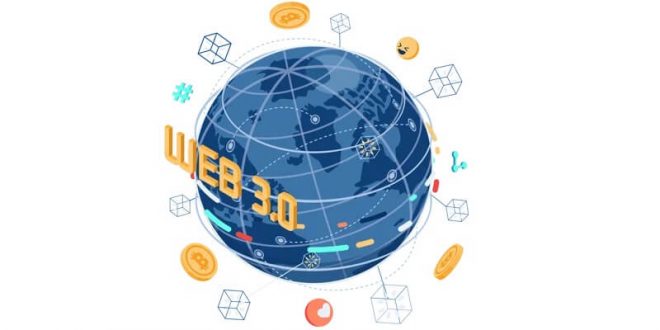The global economy’s development is continually putting a premium on supply chain management and logistics. This is especially true given today’s shipping backlog at all major worldwide ports and the decrease in commodity availability in stores. In such cases, Web3 is in supply chain and logistics and provides a slew of benefits, including decentralized data management, control over supply chain elements, and aggregation.
Do you know what the core stack of web3 integrated supply chain and logistics consists of? Are supply chain management and logistics automation solely concerned with web3? It consists of several technologies, including smart contracts, artificial intelligence, web3 programming languages, and distributed ledgers. Moreover, Web3 technology maintains a record of all documents connected to the supply chain flow and represents data coordination from all supply chain participants such as organizers, suppliers, and others.
Web3: How Does It Help Supply Chain & Logistics?
Web3 can improve supply chain and logistics management in the following ways using the underlying blockchain technology:
1. Increases Traceability And Operational Efficiency
Web3 improves supply chain management and logistics management by providing the most secure technique for monitoring and surveying the corporate supply chain and logistics. Consumers have begun to request sourcing data on the products they order and purchase as the level of digitization has increased. As a result of Web3 and blockchain technology, many businesses can understand their supply chain and logistical data. Furthermore, this technology supports businesses in engaging with customers by providing them with actual, verifiable, and unchangeable items and transaction data.
2. Web3 Promotes Transparency
You can not only generate independent and extraordinary hash values for data and every transaction, including claims and certificates, with the help of a Web3 Development Company in Dubai, but you can also form trust and security within the supply chain and logistics management process. It also provides individuals with permissionless and open access to the whole supply chain and logistics management process.
When Web3 registers an enterprise’s supply chain, it quickly confirms its validity using network validators. This latest iteration of blockchain technology includes a transparency feature that aids in real-time updating and validation of information on the Web3 supply chain.
3. It Provides Transparency To The Supply Chain And Logistics Industry
One of the most important aspects of Web3 is traceability, which specifies the level of readability and redefines old marketplace terms. Web3 and blockchain make it very simple for supply chain participants to tokenize an asset. They can divide the commodities into equal portions and obtain approval of legitimate or digital ownership of participants who tokenize the assets in this manner. It is identical to fractional ownership shares on a stock exchange. The token owners will then be able to easily swap and transfer all of their tokens.
How Web3 Reduces Product Recalls in the Supply Chain?
Everything from consumer packaged goods to product recalls is supported by global supply networks. Because it is necessary to recall consumer items or raw materials to prevent accidents or infections. Recalls of consumer goods harm millions of people globally for a variety of reasons, including lost sales, repair costs, and litigation bills. Web3 increases product traceability in such cases by decreasing reproduction and accelerating product recall.
Web3 helps producers quickly and easily search for affected items, making recalls less expensive or more effective. Furthermore, blockchain-based technology enables a supply chain to conduct visible, traceable, rapid, and effective recalls.
How Does Web3 Improve Regulatory Compliance and Reporting in the Supply Chain and Logistics Sector?
Many patients rely completely on prescription prescriptions; which is why all pharmaceutical businesses have taken administrative and concurrence reporting concerns more seriously. Furthermore, the supply chain protects enterprises from understocking or even overstocking medications, allowing them to function more efficiently.
Automation of conformance and reporting based on Web3 eliminates errors caused by manual processes and reduces all reporting expenses. Web3 has the potential to dramatically improve compliance because it reports on medical equipment, pharmaceuticals, manufacturers, and numerous consumer items. Furthermore, it is the greatest technology for delivering real-time information and disseminating it to the most appropriate stakeholders.
How does web3 automate business logistical processes?
Web3 can significantly increase productivity across the logistics and supply chain planning phases, including trade financing, and aid in the resolution of logistical issues. Integrating digital agreements and real-time shipping data with web3-based platforms enables the enabling of smart contracts. These contracts can automate corporate tasks as soon as certain conditions are met.
Smart contracts have eliminated the need for retailers to hire brokers, attorneys, or other intermediaries to carry out tasks. Retailers and logistics companies can enter into legally binding agreements with smart contracts that will terminate immediately if all set conditions are not met. These ledger-based contracts save delivery times and avoid costly errors while enhancing transparency and income.
Web3 Technology: How Will It Change The Logistics Industry?
Web3 creates a decentralized ecosystem in the logistics business that allows uncountable direct and indirect stakeholders to track the price, date, real-time location, and status of shipments without any form of impediment. Moreover, Web3, which is built on decentralized technology; shares data in such a way that it improves the level of transparency in the logistics sector ecosystem and total commodity traceability. Now is the time to delve more into how Web3 technology might transform the logistics industry:
1. Effectively Track Good’s Movement
The incorporation of Web3 technology in the logistics sector opens up the possibility of tracking items directly from the warehouse to the client. Because of the decentralized nature of information exchange; it is far too simple for all parties involved to trace the movement of products in real time. Furthermore, by using blockchain technology to store shipment-related data, the need for logistics organizations or firms is reduced. As a result, there is no need to be concerned about data alteration or tampering.
2. Permits Companies To Move Forward For Planned/Scheduled Delivery
Web3, a blockchain technology, enhances freight tracking and real-time data processing. It helps all types of enterprises to transition to pre-prepared delivery. Planned delivery is the most efficient way for organizations to streamline the entire production process and all other associated activities. With the incorporation of Web3 technology into the business; all business people will be able to choose between same-day and two-day delivery.
3. Reduces Paperwork Overload
Businesses participating in coordination activities recognize how difficult it is to maintain the necessary papers for shipping. Maintaining shipment records generates a significant amount of useless paperwork, such as invoices, receipts, payment records, and so on.
Thank you to logistics businesses that employ blockchain-based smart contracts to reduce paperwork and automate payment processes. Every blockchain-based smart contract can eliminate the involvement of third parties in shipping, minimize processing time, make payments on schedule, and manage data appropriately.
4. The Effectiveness Of The Partner Logistic Company’s Tracks
Web3, the most advanced platform, enables businesses to track the success of their partner logistics company using real-time data. With the help of this technology, a businessperson may track not only the delivery efficacy of a logistic partner company but also of a specific vehicle in a fleet. Furthermore, this data analysis can assist firms to identify big or minor flaws in the system and improve the overall supply chain’s efficiency.
5. Establishes A Transparent Ecosystem
The incorporation of Web3 technologies in the logistics sector benefits the creation of a transparent ecosystem for all customers, sellers, and suppliers. In this manner, all of the parties involved can have vital and precise information regarding the origin of the products, their current location, and the projected delivery date. This real-time data assists business owners in optimizing interrelated business procedures and improving overall business process efficiency.
Conclusive Thoughts: Web3 In Supply Chain And Logistics
Web3, the blockchain-based or decentralized technology; is being used in the supply chain or logistics business as an evolution rather than a revolution. Many industries are currently utilizing this technology, which will allow them to create new growth prospects for enterprises worldwide. It is the most effective instrument for preparing organizations to deal with existing difficulties.
Author Bio: Technical content writer Suzanne Dieze prefers to write blogs and articles about technology. I’ve written a few articles on mobile-based applications, and data science that are made up of proven methods, future expenses, and rewards.
 Free Web Resources , psd, mockups, & web templates Best WordPress Themes & Best Html Templates
Free Web Resources , psd, mockups, & web templates Best WordPress Themes & Best Html Templates








